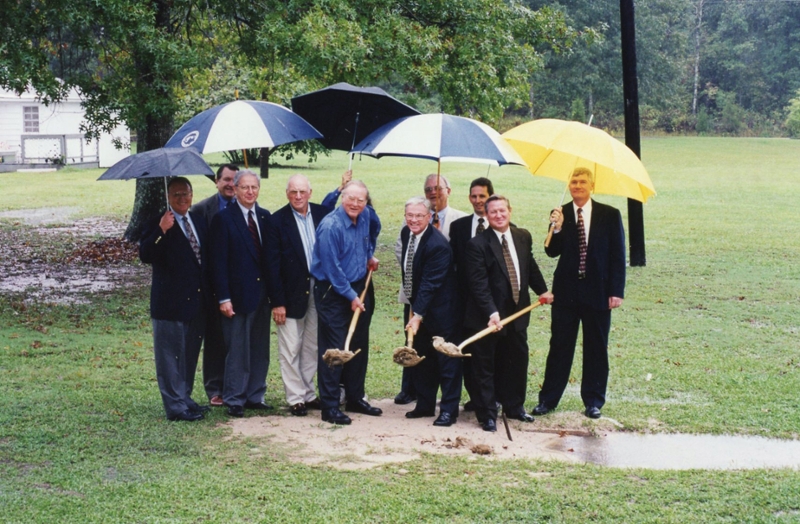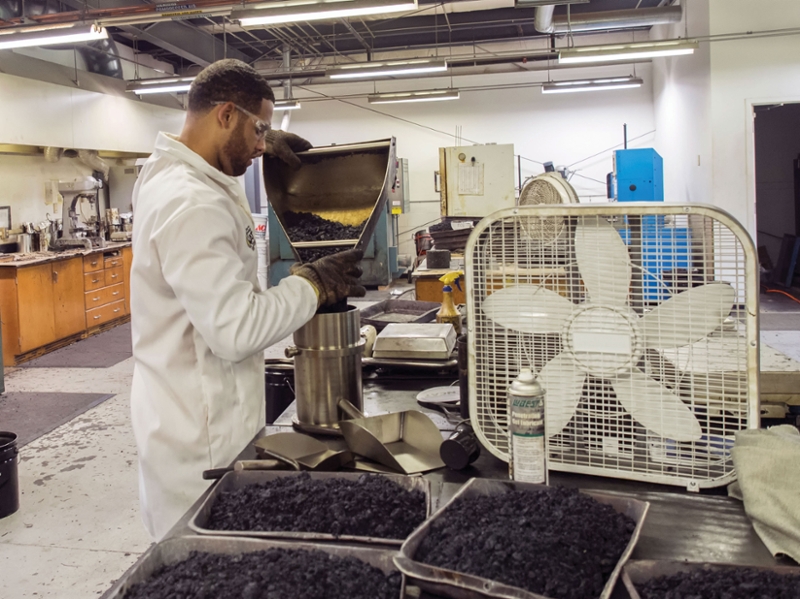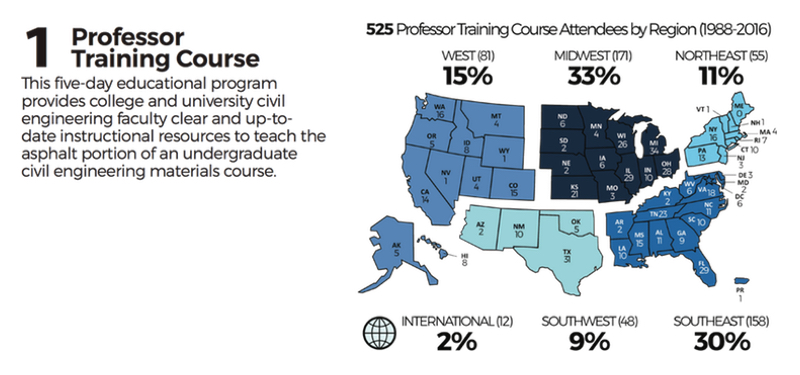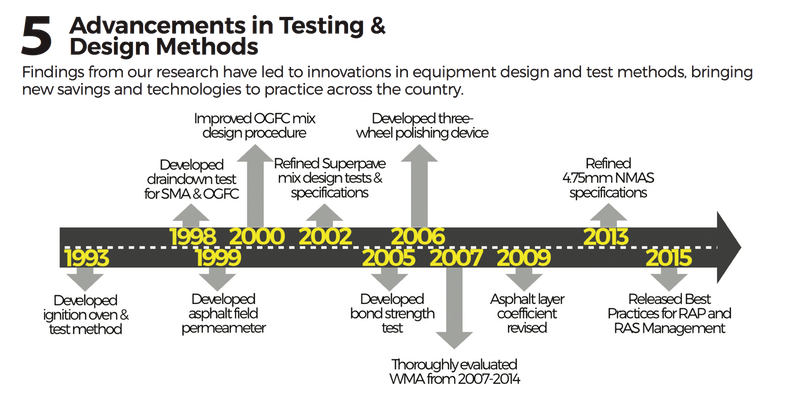- Fall 2016
National Center for Asphalt Technology Marks 30th Anniversary
The National Center for Asphalt Technology (NCAT) at Auburn University has built an international reputation for the quality of its research, training, and education. As NCAT prepares to celebrate the thirtieth anniversary of its inception, we use this milestone to reflect on the center’s development and evolution.
Organized by a partnership between the National Asphalt Pavement Association (NAPA) Research and Education Foundation and Auburn University, NCAT has grown significantly since its modest beginnings. The center began operations on Auburn’s campus in September 1986 with Freddy L. Roberts, professor of civil engineering, serving as its first director.
“We were originally located in the Harbert Engineering Center and had a staff of six when I arrived as assistant director in 1987,” said NCAT Director Emeritus Ray Brown. “As we continued to expand, some of our staff moved to Ramsay Hall. Later, we added additional space near the Auburn airport. We were definitely breaking new ground.”

Frazier Parker (left) and Ray Brown (right) at the NCAT facility in the Harbert Engineering Center.
NCAT’s expansion was just beginning, and dedication ceremonies for a centralized main office facility, state-of-the-art testing laboratories, and 1.7-mile track took place on October 23, 2000. The Test Track has since become NCAT’s research centerpiece, uniting real-world pavement construction with live, heavy trafficking for rapid testing and analysis of asphalt pavements. Funded and managed as a cooperative project, the track has led to advancements in pavement design, construction, and maintenance that save sponsoring organizations an estimated $160 million per year.

Groundbreaking ceremony at the NCAT Test track, September 29, 1998.
NCAT researchers have developed practical and cost-effective solutions to challenges facing the asphalt pavement industry. Numerous studies conducted for the Federal Highway Administration (FHWA), state departments of transportation, and the National Cooperative Highway Research Program (NCHRP) have led to research findings that have brought new technologies to practice around the country.
One of NCAT’s biggest accomplishments has been training and educating the next generation of leaders in asphalt pavement technologies. Hundreds of individuals worldwide attend NCAT’s training classes each year, and Auburn University civil engineering students can gain real-world experience by working in the cooperative education program at NCAT while taking courses in materials and pavements.

Damian Jackson gains practical work experience as an NCAT co-op student.
NCAT was established to provide practical research and development to meet the demands of maintaining America’s highway infrastructure. Today, NCAT remains committed to its mission: to provide innovative, relevant and implementable research, technology development, and education that advances safe and economically sustainable asphalt pavements.
“One of the most remarkable things about NCAT is that so much has been achieved in such a short time,” said NCAT Director Randy West. “Our upcoming anniversary is both an occasion for celebration and an opportunity to look forward to the next 30 years of cooperative research and innovation.” NCAT will celebrate its 30th anniversary during an open house planned for next year.
Here’s a look back at some of the amazing milestones NCAT has achieved throughout the years.





